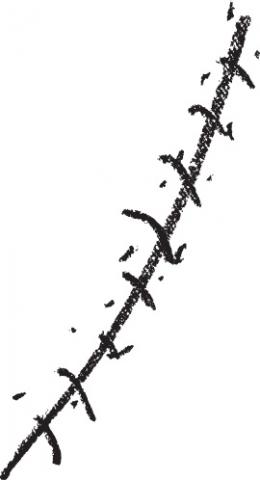
This website has been possible due to an Educational grant provided by Sinclair Pharmaceuticals, providers of Kelo-Cote scar Gel. We would like to thank Sinclair Pharmaceuticals for thier generous support
I have a scar what can I do?
Two weeks after the wound has closed your skin is still fragile and maybe inflamed. However, it is important at this stage to gently moisturise and massage the scarred area with a non-perfumed simple cream. This will ensure that the scar is kept hydrated and encourage the scarred area to keep its flexible texture. It is important to moisture and massage the scarred areas at least twice a day for about 10minutes each time for the first two weeks.
After two weeks the skin is less fragile and you need to continue to moisture and massage the scarred area at least twice a day and apply more pressure to the scarred area.
To reduce the likelihood of the scar becoming problematic you can apply a silicone based gel or spray twice a day after massage. The silicone gel and spray will help to keep the scar hydrated, provide a barrier and normalise the growth factors, which means that it will help to reduce the collagen production in the skin and allow the scar to flatten, soften and reduce any redness. Silicone has been clinically proven to improve the look of the matured scar.
Should you become concerned about your scar you need to contact your GP in the first instance. Your GP may refer you to a specialist where your scar will be assessed on an individual basis and a treatment plan agreed.
What can a Professional do for my scar?
Your scar may require the addition of a pressure garments. Pressure garments prevent and control the formation of hypertrophic scars by applying counter pressure to the wounded area. Pressure garments aid in reducing the effects hypertrophic scarring there by reducing scarring and deformities. In general, pressure garments will reduce the likelihood of the scar becoming thicker or raised. You may need to use the pressure garment until the scar shows signs of flattening. Your scar will be assessed regularly by a professional.
Should your scar still remain problematic then you may need to have additional treatments from a professional.

Treatment Protocol for your Scar
Specific Guidelines have been established for adults and Children in conjunction with top London Plastic surgeons and scar therapists. Click on the buttons on the left for specific Therapy.